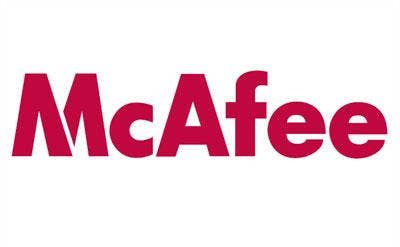Tech Sector Layoffs Mount

Cisco CEO John Chambers said in early February that the company is continuing its aggressive cost-cutting initiative that will slash $1 billion in operating expenses by the end of fiscal year 2009. Chambers said Cisco plans to exceed the $1 billion in savings through a continued hiring freeze, corporate travel restrictions and non-head-count-related resource realignment. Chambers said additional realignment can be expected throughout the year, saving roughly $500 million. Throughout 2009, the vendor will likely cut between 1,500 and 2,000 jobs. The moves are in response to results of the second fiscal quarter of 2009, in which Cisco's revenue dropped 7.5 percent year over year to $9.1 billion from $9.8 billion.

Early last month, Google said it would divest itself from radio advertising and focus on streaming audio and TV ads. A post on the Google Traditional Media Ads blog said Google would therefore eliminate 40 jobs and will close Google Audio Ads and AdSense for Audio -- automation programs for audio advertising -- by May 31. Still, Google wasn't dissuaded from giving members of its executive team bonuses totaling more than $6 million.

Ingram Micro laid off 8 percent of its North American workforce in February, or roughly 300 employees. Approximately 100 employees were cut at the company's Williamsville, N.Y., campus, another 50 in Canada and 150 more from the company's Santa Ana, Calif., corporate headquarters and other centers in the United States. A company spokesman said that 2008 was softer than expected, particularly in the fourth quarter. Ingram Micro had previously been managing operating expenses through natural attrition and managing expenses pretty aggressively. However, the distributor decided that the staff reductions were needed to maintain profitability.

Lenovo will cut 550 employees in Europe. The reduction in head count comes shortly after the PC maker reported $97 million in losses during the third quarter of 2008, the first decline the company had experienced in three years. The European head-count reduction is part of Lenovo's restructuring strategy, revealed in January, to slash $300 million during this fiscal year. As part of the plan, Lenovo executives were prepared to take pay cuts of between 30 and 50 percent.

Although McAfee reported increased earnings in the fourth quarter, the security vendor said last month it anticipates layoffs and consolidating facilities as it continues to cut costs amid the worsening economic landscape. McAfee execs said they will continue to impose travel restrictions, hiring freezes to keep head count flat, mandatory time off, salary freezes and suspension of certain compensation benefits. Further, McAfee is planning a 50 percent consolidation of the recently acquired Secure Computing's back-office resources, and will shutter more than two-thirds of Secure's facilities.

NetApp laid off roughly six percent of its 8,000 employees in early February. NetApp also reallocated other resources to initiatives designed to increase operating efficiency and build a foundation for additional market share gains. A recent report from Barron's said NetApp is expected to see revenue growth of between 10 percent and 15 percent in 2009, and as high as 20 percent in 2010, because of the strength of the storage market.

Nokia announced in early February that it was planning job cuts and followed that news up later in the month with a program designed to find up to 1,000 voluntary resignations. The voluntary resignation program was to commence the first week in March.
As part of the job cuts, the mobile phone maker will close a research center, eliminate up to 320 jobs and temporarily lay off 2,500 workers in Finland. It also announced approximately 90 layoffs in global support and new businesses departments. Although Nokia is the world's largest cell phone maker, its net profit plummeted 42 percent in 2008 to $5.1 billion.

Nortel Networks eliminated another 3,200 jobs worldwide in addition to 1,800 layoffs it previously announced. The telecom vendor is currently restructuring to pull out of bankruptcy protection. In November, Nortel posted $3.4 billion in losses for the third calendar quarter, its largest loss in seven years. During the last four years, Nortel has chopped roughly 18 percent of its workforce and went about $4.5 billion into debt.

Software firm Sapient let go of 300 employees -- roughly eight percent of its staff -- at its offices in Bangalore, Noida and Gurgaon. According to reports in the India Times, the affected employees were from various management levels. Two-thirds of Sapient's workforce is located in India.

In February, Sharp reported a third fiscal quarter loss and warned investors it was headed for its first-ever annual operating loss of about $1.1 billion for the fiscal year ending March 31. As a result, it plans to cut 1,500 non-regular jobs and seeks to slash overall costs by $2.2 billion.